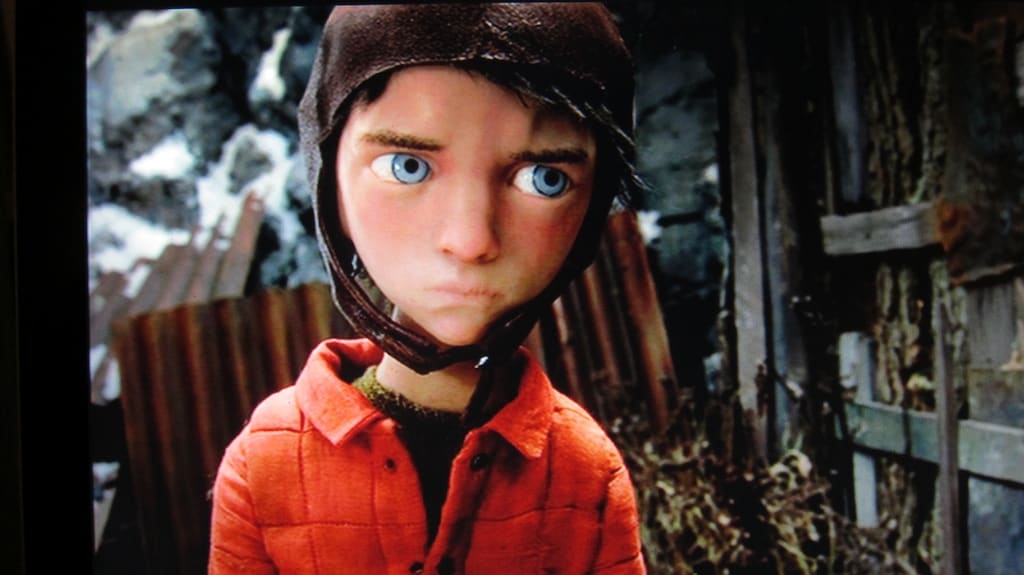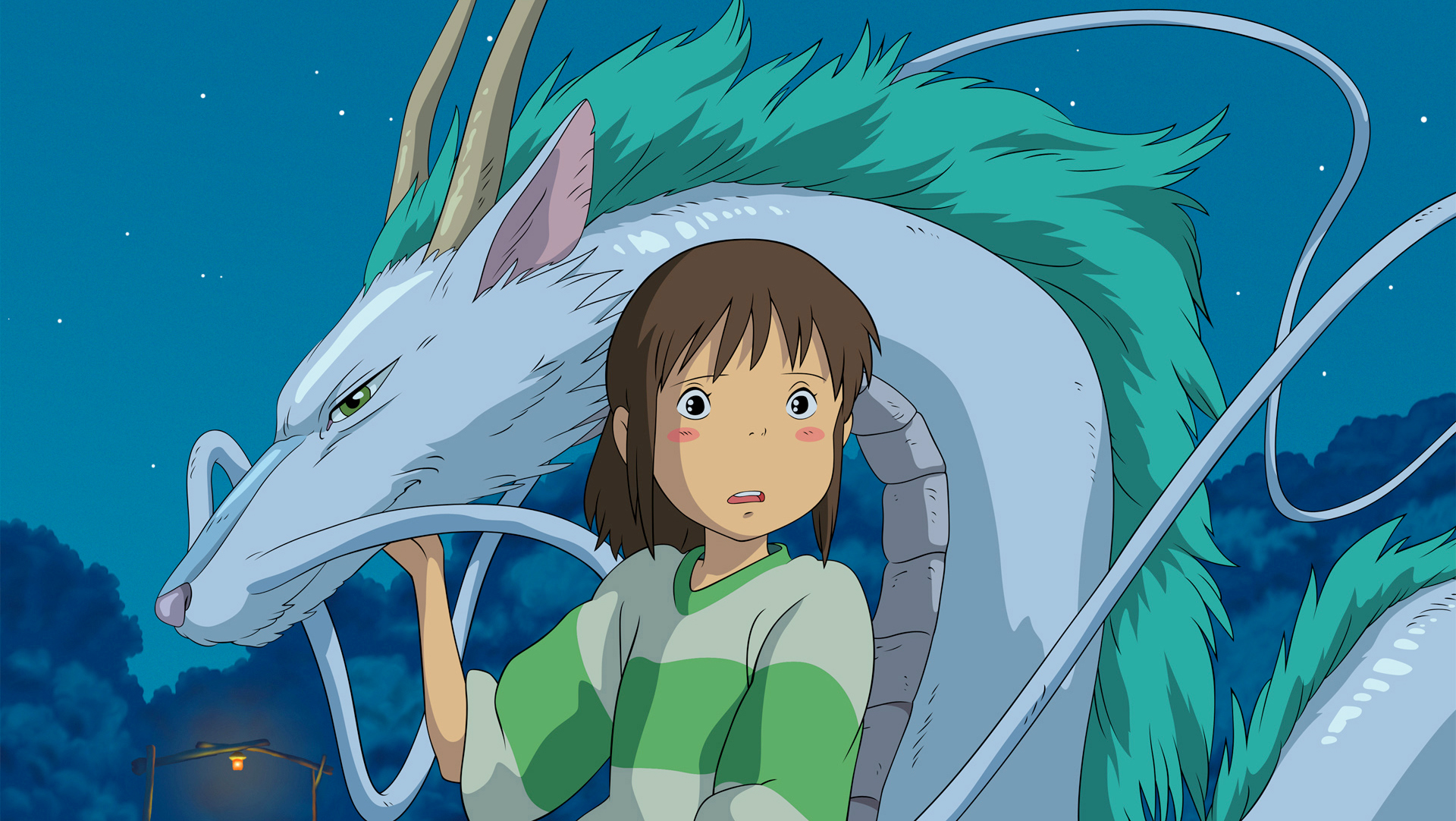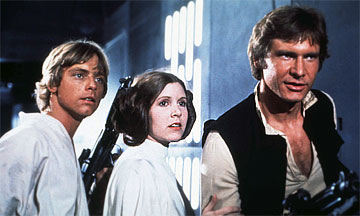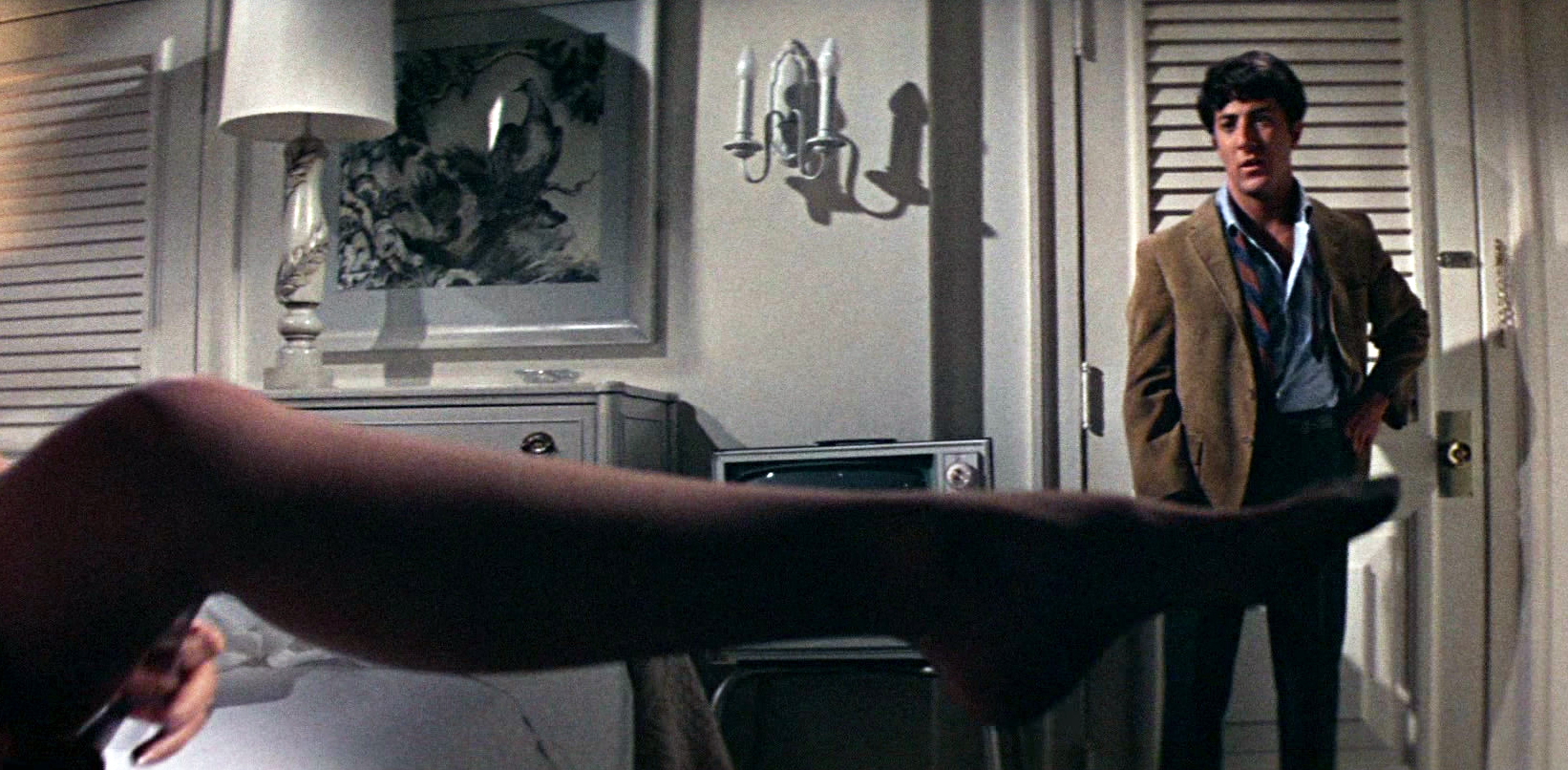Best-Of the Oscars
The best aspect of the Academy Awards is the fact that they award all creative aspects of filmmaking: even the unheard of sound editors, makeup artists, and short filmmakers have a shot at Oscar glory as they are honored alongside the glamorous actors and revered directors on Oscar night.
To celebrate this weekend's Academy Awards, here is my favorite winner from each of the 24 categories.
2007: Le Mozart des Pickpockets
Philippe Pollet-Villard
This screwball comedy of sorts follows the bumblings of two inept Parisian pickpockets who take in a homeless immigrant child. Funny and emotional, this film eschews the "student filmy" feel that many of the nominees in this category possess, with just the right amount of quirkiness which for some reason plays well in this category (for instance, "God of Love" or "The New Tenants").
Best Animated Short
2007: Peter & the Wolf
Suzie Templeton and Hugh Welchman
A gorgeous stop-motion rendition of Sergei Prokofiev's classic. At 32 minutes, "Peter & the Wolf" is much longer than the average nominee in this category, which tend to run much shorter than their live-action counterparts (this year, nominee "A Single Life" is only two minutes in length), but fills the story out well. The cat is particularly hilarious.
Best Documentary Short
2007: Freeheld
Cynthia Wade and Vanessa Roth
Oddly, all three of my choices for short film are from the 2007 Oscars (a fantastic year all around). This tear-jerker of a documentary follows police Lieutenant Laurel Hester's fight to have Ocean County, New Jersey allow her same-sex domestic partner receive her pension in light of her imminent death from terminal lung cancer. This short film puts the battle for gay equality in very real, human terms.
Best Documentary Feature
2003: The Fog of War
Errol Morris and Michael Williams
This stunning documentary is notable for its use of Errol Morris' invention the "Interrotron", allowing the interviewee (here, former Secretary of Defense Robert McNamara) to appear to be directly interacting with the viewer. The result is an engaging portrait of the Defense Secretary as he grapples with the difficult and divisive decisions he had to make during the Vietnam War.
Best Foreign Language Film
2007: The Lives of Others
Germany
Another pick from 2007. This heart-pounding thriller in Communist East Berlin, follows a surveillance agent of the Secret Police who becomes enraptured by the lives of a writer and his lover whom he is secretly listening in on.
Best Animated Feature
2003: Spirited Away
Hayao Miyazaki
This beautiful anime film by acclaimed director Hayao Miyazaki was a shocker of win, beating out much more mainstream fare such as Ice Age. The beautiful animation transports the viewer to a fantastical world born from the remains of an abandoned theme park. Not all is well in this world, however, as our young heroine must confront the dangerous beasts that inhabit it.
Best Production Design
2011: Hugo
Dante Ferretti (Production Designer) and Francesca Lo Schiavo (Set Decorator)
When it comes to production design, there is no match for husband-wife duo Dante Ferretti and Francesca Lo Schiavo, who have also won Oscars for their indescribably beautiful work on The Aviator and Sweeney Todd: The Demon Barber of Fleet Street. But Hugo, with its magnificent train station lobby, warm Parisian boutiques, and the cold inner machinations of the clock tower, that earns my #1 spot in this category.
Best Costume Design
1977: Star Wars
John Mollo
There are so few movie costumes that have truly permeated the cultural consciousness: the one that immediately comes to mind is Dorothy's ruby red slippers in The Wizard of Oz. This category is filled to the brim with stuffy period pieces set in noble French courts...impressive, but not very memorable. But are there any costumes more well known than Darth Vader's imposing black cape and helmet? the pristine plastic white Stormtroopers? or Luke Skywalker's modest tunic? I don't think so.
Best Cinematography
1980: Tess
Geoffrey Unsworth and Ghislain Cloquet
In a category that Academy voters have recently been confusing for "Best Flashy Visual Effects" (see: Gravity, The Life of Pi), it is comforting to go back to the older winners that truly understood what good cinematography was about. Rebecca and Lawrence of Arabia are good examples, but my pick goes to Tess, whose sumptuous cinematography truly makes the movie. The tale of the rather modest d'Urberville family, thrust into the limelight after learning of their noble origins, becomes epic in scope thanks to the stunning use of color and light by Geoffrey Unsworth and Ghislain Cloquet.
Best Makeup & Hairstyling
2006: Pan's Labyrinth
David Martí and Montse Ribé
This Mexican film was thought to be a lock for Best Foreign Language Film (it did, thankfully, lose to the better The Lives of Others, mentioned above), but it did not walk away empty handed, picking up a much deserved Oscar for Best Makeup & Hairstyling. It's hard to believe that these creatures were not created with CGI, making them all the more realistic and terrifying.
Best Visual Effects
1928: Wings
Roy Pomeroy
Back in the day, this category was called "Best Engineering Effects." There is no CGI to be found in this film, which also has the distinction of being the first Best Picture winner. Those really are planes actually flying, performing those daring stunts in the clouds as they re-enact the Great War dogfights with 1920s era silent movie cameras mounted to their cockpits. This silent screen gem shows how World War I was won---in the air---amongst a love triangle plot that puts a human touch on these pioneers of the sky.
Best Film Editing
2000: Traffic
Stephen Mirrione
This movie, a critical take at the War on Drugs, looks at the issue from three perspectives: a drug user, a drug trafficker, and a drug law enforcer. Expertly weaving between these three story lines was probably no easy feat for editor Stephen Mirrione, maintaining both pace and continuity in this brilliant crime drama.
Best Sound Editing
1977: Star Wars
Ben Burtt
Sound editors are tasked with creating and then inserting all sounds not recorded on set. These range from the mundane (footsteps, a door creaking) to the intense (explosions, gunfire). But what to do if the sounds you need don't even exist? Ben Burtt gets my honor for Best-Of Best Sound Editing for creating the sound effects in Star Wars, which form such an integral part of this far-away galaxy. From the whizz of the lightsaber to the labored breathing of Darth Vader, there are no other sound effects that the average person can so readily hear in their head.
Best Sound Mixing
1959: Ben-Hur
Franklin Milton
Once all the sound is recorded: on-set dialogue, sound effects, orchestral score, voice-over narration, the sound mixer needs to put it all together to form a coherent whole. Today's standard cinema audio configuration includes six channels of audio in a surround-sound setup. Which sounds will come out of which speakers when, and at what time? Franklin Milton gets my Best-Of for the famous chariot race sequence alone. Through the gorgeous sound of Ben-Hur, the viewer is transported to the ancient Roman Empire, thanks in large part to the then un-heard of six channels of sound.
Best Original Song
1961: "Moon River" from Breakfast at Tiffany's
Henri Mancini (music) and Johnny Mercer (lyric)
It's hard to imagine that Marilyn Monroe was almost cast in the role of Holly Golightly, which thankfully went to Audrey Hepburn instead. When Holly casually strums this melancholy tune on her guitar while sitting on the windowsill of her New York City apartment, we instantly connect with the emptiness and loneliness of a woman who feels totally lost in life (an effect that would be totally destroyed if performed by the hot-shot bombshell that was Monroe). There isn't another song that has won in this category that had me so strongly connect with its film---really, the point of having this category in the first place (too many winners simply play over the end credits).
Best Original Score
1977: Star Wars
John Williams
Another win for Star Wars, but no, I am not a fanatic. Memorable costuming, memorable sound effects, and a memorable score complete the Star Wars trifecta. Who can honestly not be struck with terror on hearing the "Imperial March" or fill with pride when the final music cue plays over the ceremony honoring our valiant heroes?
Best Adapted Screenplay
1943: Casablanca
Julius J. Epstein , Philip G. Epstein, and Howard Koch
"Here's lookin' at you kid," "Play it Sam. Play 'As Time Goes By,'" "We'll always have Paris." Few movies are as filled with memorable dialogue as Casablanca. But it's not just the quotable one-liners that make the screenplay the golden standard that it is. Released at the height of World War II, the exploits of Rick and Ilsa were all too real and all the more terrifying for 1943's audience. Set in the exotic no-man's-land of Casablanca, Morocco, the film also adds a new take on the World War II genre. Adapted from Joan Alison's unstaged stage play "Everybody Comes to Rick's" these screenwriters took an unheard of work and made it something memorable.
Best Original Screenplay
1951: Sunset Boulevard
Charles Brackett, Billy Wilder, and D.M. Marshman Jr.
This creepy classic is not quite film noir, not quite thriller, and not quite drama. It's weird, but not excessively so. A stinging critique of Hollywood, an industry that has left its former silent film stars to rot, Sunset Boulevard draws you into the unraveling of depressed diva Norma Desmond as she desperately clings on to any semblance of relevance.
Best Supporting Actress
2007: Tilda Swinton in Michael Clayton
A truly understated performance, Tilda Swinton brilliantly plays the evil yet vulnerable CEO of an unscrupulous agricultural chemical manufacturer. It's always refreshing when an non-Oscar-baity performance upsets: indeed, my #2 pick here would be the ultimate Oscar shocker that was Marisa Tomei winning for My Cousin Vinny.
Best Supporting Actor
2009: Christoph Waltz in Inglourious Basterds
If any Nazi can make you laugh, it's Chrisoph Waltz playing Colonel Hans Landa. A brilliant performance spanning no fewer than four languages (English, German, French, and Italian), no other actor has been able to both instill terror in me and put a smile on my face, and at the same time no less.
Best Leading Actress
1939: Vivien Leigh in Gone with the Wind
Scarlett O'Hara is a staple among big-screen heroins. Vivien Leigh is at the top of her game in imbuing in Scarlett a ceaseless tenacity across the film's four-hour runtime. Taking her from the crème-de-la-crème of Southern society, to rock bottom, and back up again, it is a testament to Vivien Leigh's performance that it can stand out in a film that is already so full of other amazing achievements.
Best Leading Actor
1976: Peter Finch in Network
When news anchor Howard Beale gets notice that he will soon be let go due to low ratings, he promises on his next broadcast that he will kill himself the following week on live television. The result is a runaway ratings success that saves his job (and consequently his life). His subsequent rantings on the pitiful state of media consumption are all too true (and especially so today)...but is he also insane? This was a posthumous win for Peter Finch, who died suddenly of a heart attack while promoting the film.
Best Directing
1967: The Graduate
Mike Nichols
This film, with its decidedly late-60s style, is nothing short of "groovy." The refreshing, modern vision of Mike Nichols (who unfortunately passed away last year) brings across the loneliness and confusion of Benjamin Braddock, a man fresh out of college, who has an affair with his married, and much older, neighbor while dating her daughter. Do we sympathize with Ben despite the sordid love triangle he has created? Yes and no, thanks to the intricate construction by Nichols.
Best Picture
1996: The English Patient
Saul Zaentz
This is certainly an unconventional pick, especially in light of more revered winners such as Gone with the Wind, Casablanca, and The Godfather. But this film is simply breathtaking in its beauty, from the villas of Italy as our eponymous invalid is cared for by nurse Hana (played by Juliette Binoche who won an Oscar for the role) to the majestic deserts of north Africa. The scene with Hana and her beau, who shows her frescoes by the light of a flare in an abandoned church, is one of the most intimate captured on film. "Best Picture" is about looking at a movie as the sum of its parts...and all the parts are gorgeous here (production design, cinematography, sound, acting, directing), and the sum of them, even more so.























